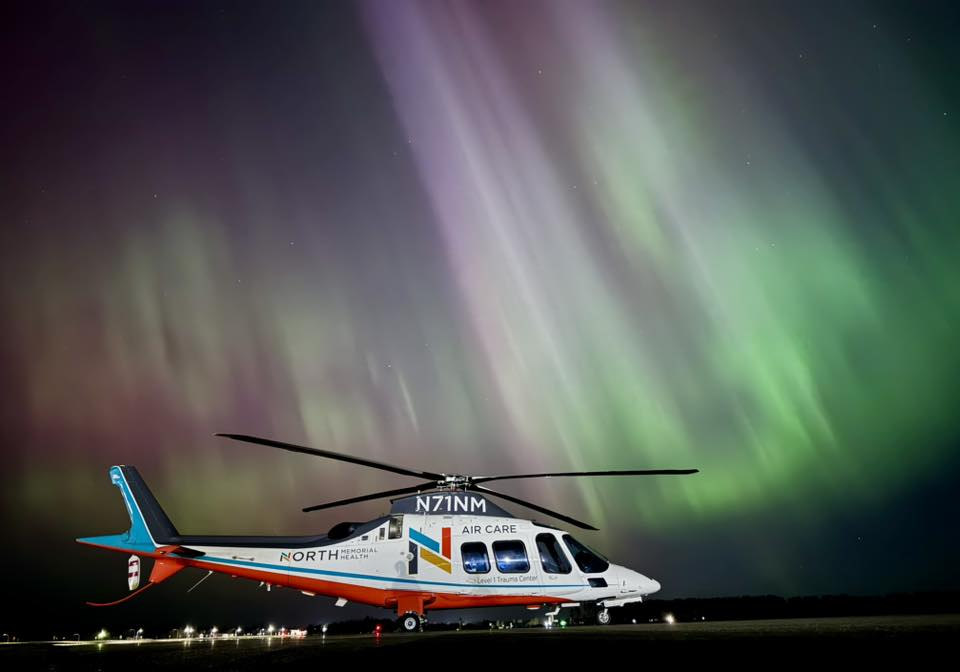Cranking Up the Heater: Your NEMSPA Update for the Pre-Winter Grind
- Brett Reeder
- Nov 15, 2025
- 4 min read

Photo Credit Noah DeKam
Message from NEMSPA President
As the end of 2026 is fast approaching, I am here flying in Southern Idaho and Northern Utah, waiting for the seasons to shift once again with snow in the forecast.
Each season brings a necessary change in our safety mindset and how we work with Mother Nature to fly as safely as possible.
We are working diligently to engage with our members and ensure we have a more active board. Remember, this is your association, and we would love to hear your feedback on what you expect and would like to see.
To keep you informed, we wanted to share a quick, summarized look at what NEMSPA has been working on and where we’re directing our energy next.
Your membership and engagement make all of this possible! Thank you!
– Brett Reeder, President
What we have been up to
We had a great event at AMTC in Omaha. We did some great collaboration and there were some great classes.
One of our NEMSPA members Ken Cereny presented on a thought provoking Topic called, "Avoiding Accidents on the Road to Abilene. The Abilene Paradox highlights how organizational and personal pressure can undermine the critical Helicopter Air Ambulance (HAA) safety rule, "ALL to say GO – 1 to say NO," leading to potentially disastrous flights when no one speaks up to veto a mission.
Another NEMSPA member and Chief Pilot of PHI Air Medical, Wade Cook shared Landing Zone Best Practices. He shared a video by AMOA, check out the Video here https://www.youtube.com/watch?v=SwH1YVwhgyc
We met with our Executive board over the Air Medical Journal. We are working on bringing you great content and relevency in the AMJ. If you have not accessed the digital version yet, look for instructions on the bottom of our Resources page, https://www.nemspa.org/education
We had a great opportunity to recognize 2 great pilots at the award ceremony
Pilot of the Year, Bobby King
Lifetime Achievement of the Year, Karl Hatlemark
What's in the news
Today! on FAAST Coffee & Wings USHST presents “Too Tired to Hover - HS-E 23-04 on Fatigue
"Saturday Morning Coffee and Wings - Too Tired To Hover"
Topic: Managing Fatigue In Helicopter Operations
Today, Saturday, November 15, 2025 at 09:00 Central Standard Time
Join us for A VIRTUAL cup of coffee, a donut, and a LIVE WEBINAR as Chris Baur and colleagues discuss fatigue in helicopter operations.
Fatigue is an often underreported but significant risk factor in helicopter operations:
Since 1990, NTSB has conducted 6,561 helicopter accident investigations
While only 33 investigations explicitly cited fatigue or lack of sleep as a contributing factor, this likely understates the true impact
Based on other industries, fatigue is estimated to be a factor in 1 in 5 incidents
Subjective self assessments are often inaccurate because those with sleep debt often understimate their alertness deficit.
Who is "In Command" at your company?
One of the most persistent challenges in high-stakes industries is the tension between leaders who want control and frontline professionals who need autonomy to do their jobs safely and effectively.
On the surface, it looks like a difference in preference.
In reality, it reflects a more profound structural and psychological disconnect.
Leaders seek control because:
-They’re accountable for outcomes and risk.
-They need predictability in a complex system.
-They fear the consequences of inconsistent decisions.
-They’ve been trained to manage through standardization and oversight.
Frontline teams seek autonomy because:
-They face dynamic, high-consequence conditions in real time.
-They need freedom to use judgment and adapt to uncertainty.
-Their professional identity is tied to expertise, not permission.
-They carry the emotional and moral weight of every decision.
Neither side is wrong.
Leaders need to understand this framework to inspire and lead autonomous teams toward the desired performance outcomes in high-risk environments.
The 94% Fatal Threat: Why This Study Should Change Your Pre-Flight Briefing
While the article focused on low-hour GA pilots, the findings relate to the need for consistent instrument proficiency training for all Air Medical pilots, regardless of total flight time, to effectively manage an inadvertent entry into IMC.
How You Can Contribute and Get Involved
Write an article: Share your expertise and insights with fellow pilots.
Join a Committee: Participate in shaping the future of NEMSPA. Email us if you want to work on our initiatives
Become a Mentor: Guide and support the next generation of EMS pilots.
Stop by the the booth at VERTICON 2026 in Atlanta and ask about a Free Shirt, I promise it won't disappoint!

Base/Program Spotlight
We want to spotlight your base/program.
What got you into Air Medical?
What’s the best part of this job?
What company do you work for?
How do you spend your free time?
Base/Program Spotlight
Location
How long are your flights?
Coverage area?
What makes your base different?
Crew Composition?
How does your crew unwind after a flight
Reply to this email with answers to the above question.


Comments